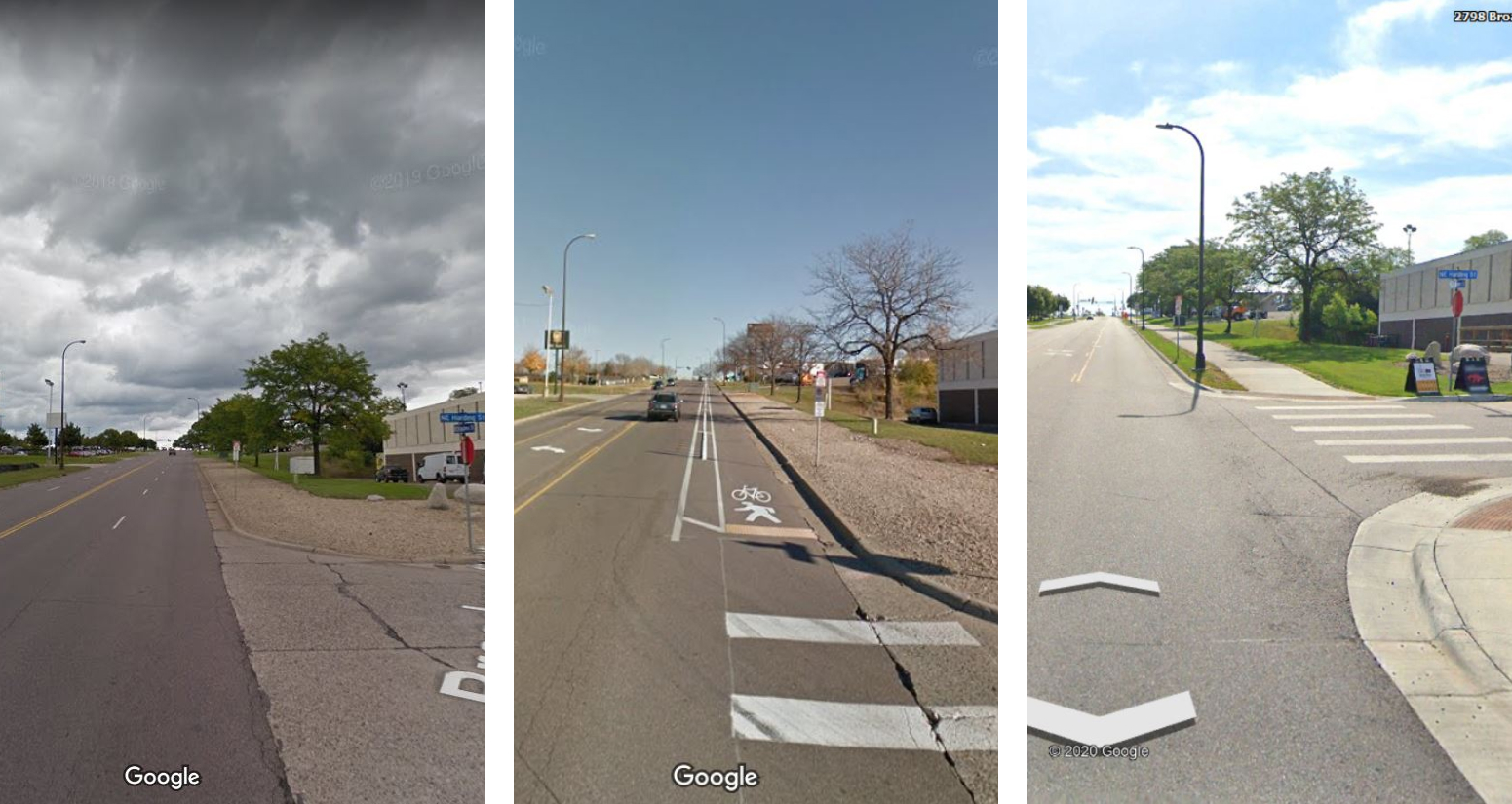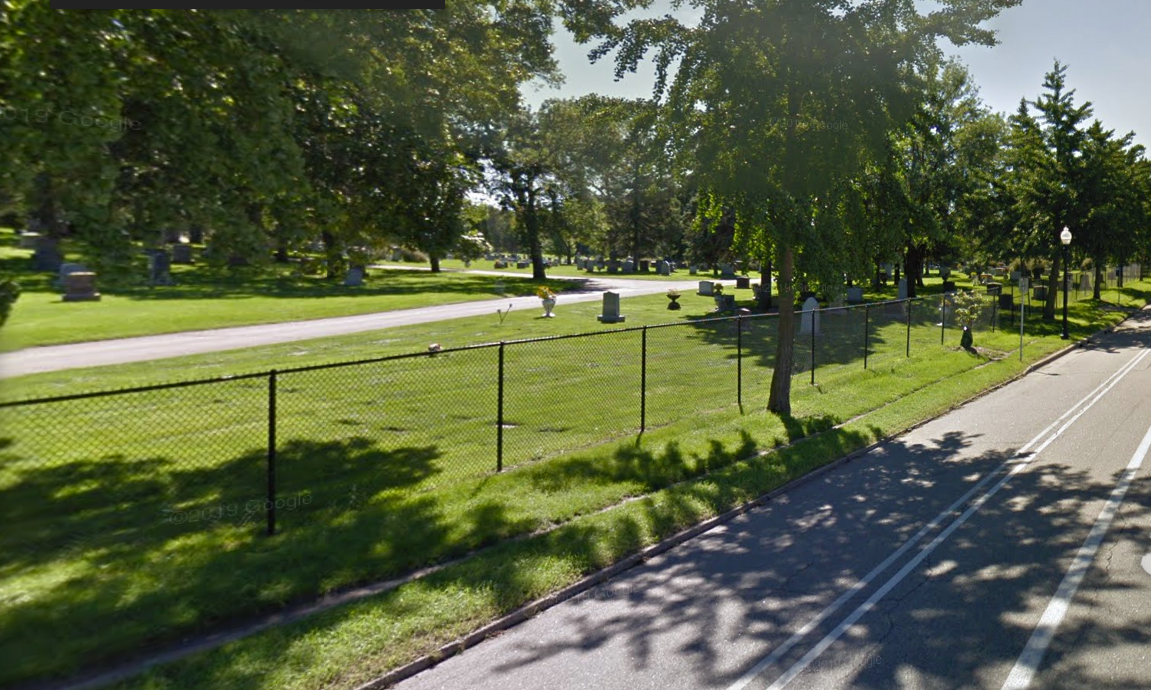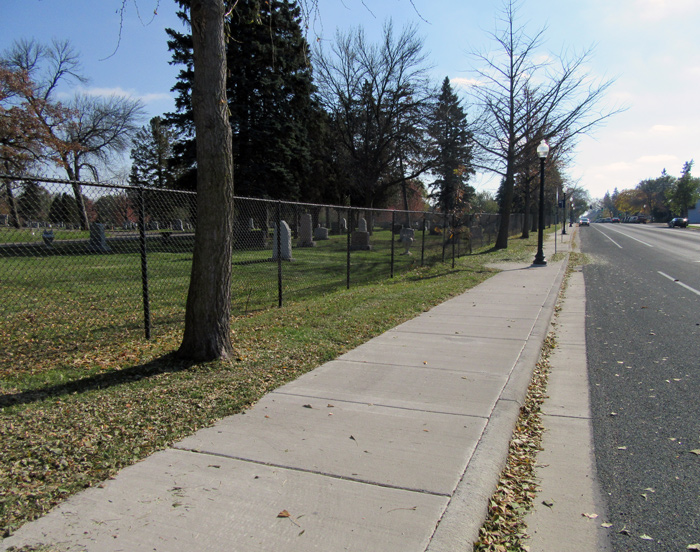Strategy 5 Ensure City’s policies and practices support consistent access to the sidewalk network.
The actions within this strategy are divided into two categories:
Action we will DOActions we will SUPPORTAction we will do are followed by “DO” and are colored in dark gray, and actions we will support are followed by “SUPPORT” and are colored in light gray.
Learn more about how we get thereA variety of activities can cause temporary or permanent obstacles to accessing the over 2,000 miles of sidewalks in the city, including temporary closures due to street projects, utility work or private development projects, upheaving or other physical obstruction that makes a sidewalk inaccessible to people using wheeled devices to travel, and lack of sidewalk for other reasons, including deferred maintenance.
City crews inspect sections of the city each year to determine where repairs are needed, and then work with property owners to fix the sidewalks – usually with a focus on broken or heaved sidewalks that hinder movement. Temporary patches are also deployed on an as-needed basis (typically complaint driven) until permanent fixes are secured.
Actions to ensure City’s policies and practices support consistent access to the sidewalk network.
Walking 5.1
Complete a condition inventory of sidewalk, City-owned multiuse trails and street crossings.
Supported goals:
Equity Mobility
Related actions:
Bicycles 6.6
Difficulty:
High
Timeframe:
2024-2027 (Years 4-7)
Walking 5.2
Prioritize sidewalk repair locations by using a data driven approach based on the sidewalk inventory data.
Supported goals:
Safety Equity Mobility
Related actions:
Difficulty:
Medium
Timeframe:
2024-2027 (Years 4-7)
Walking 5.3
Fund and implement proactive inspections of temporary pedestrian access routes adjacent to work zones to ensure access requirements are being met; issue fines for non-conforming or non-existent pedestrian access routes and consider withholding future permit approvals until non-compliant access routes are eliminated.
Supported goals:
Safety Mobility
Related actions:
Difficulty:
Medium
Timeframe:
2020-2023 (Years 0-3)
Walking 5.4
Confirm location of and fill gaps in the sidewalk network and prioritize gaps near parks and other public destinations.
Supported goals:
Safety Prosperity Mobility Active Partnerships
Related actions:
Transit 5.1
Difficulty:
Medium
Timeframe:
2020-2023 (Years 0-3)
Status:
On-going
Walking 5.5
Provide pedestrian crossings at all legs of legal intersections by default; retroactively work to install these where they do not exist.
Supported goals:
Safety Mobility Active Partnerships
Related actions:
Difficulty:
Medium
Timeframe:
2024-2027 (Years 4-7)
Walking 5.6
Pursue quick-build interim solutions for widening narrow sidewalks or closing sidewalk gaps through interim designs until street is reconstructed.
Supported goals:
Safety Equity Mobility
Related actions:
Difficulty:
Medium
Timeframe:
2020-2023 (Years 0-3)
Status:
On-going
Walking 5.7
Conduct review of the ADA Transition Plan for Public Works on a biennial basis to evaluate progress and suggest plan updates in pursuit of improved compliance.
Supported goals:
Safety Equity Mobility
Related actions:
Difficulty:
Medium
Timeframe:
2020-2023 (Years 0-3)
Status:
On-going
See also actions:
- Street Operations Strategy 9
Street detours and Complete Streets


